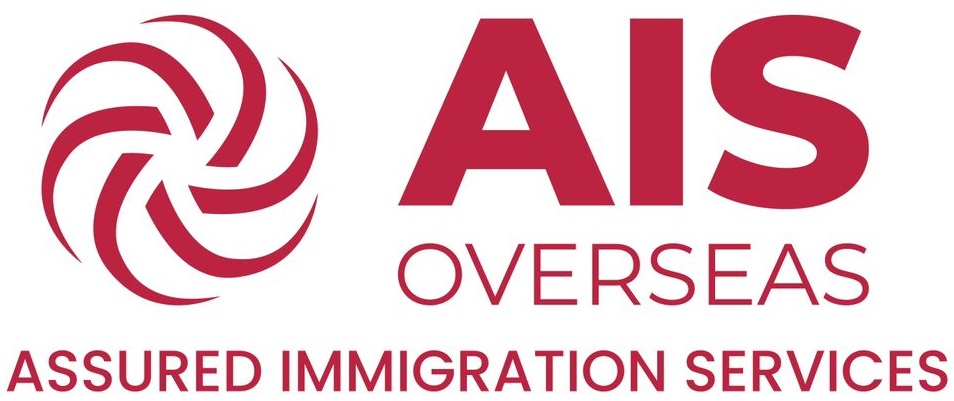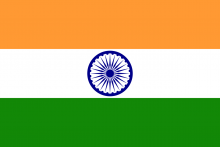
Study in Ireland
Sign up for a free expert consultation
Study in Ireland
- 8/500 QS World Ranking Universities
- 2 Years of post-study work visa
- 94% Student Visa success rate
- Tuition Fees 6,000 – 20,000 EUR/academic year
- Scholarship worth 2000 - 4000 euros per year
- Get a Visa in 8 to 10 Weeks
Ireland Study Visa
International students are welcome to study for graduate, postgraduate, master's, and other degrees in Ireland. Numerous of the world's top colleges are centered there. International students who wish to study in Ireland are granted a study visa. The nation's success rate for student visas is over 96%.
Reasons to Study in Ireland?
Research skills at Irish universities are highly regarded, and your qualifications will probably be accepted in practically any place on the globe. To assist students in gaining real-world experience related to their subject of study, several colleges also provide internship opportunities.
- Innovation and research
- A wide selection of courses
- Stay in a secure environment.
- Excellent employment prospects and exposure to the industrial sector
- Global Business Hub
- Highly developed democracy with a modern economic system
Before deciding to study in Ireland, you must first choose which Ireland study visa to apply for. There are two types of Irish student visas available:
You must apply for a C-study visa if you intend to study in Ireland for less than three months. A short-stay C visa is often a training visa that enables you to enter Ireland for ninety days to take part in a program for job or professional development. If you have a training visa, you are not permitted to work.
For courses lasting more than three months, you have to apply for a "D study visa."
Usually, an overseas student who plans to stay in Ireland for more than three months applies for a D-study visa.
Need help studying abroad? AIS Overseas will assist you in all the way
Top Universities in Ireland
|
Institution |
QS Ranking 2024 |
|
Trinity College Dublin, The University of Dublin |
81 |
|
University College Dublin |
171 |
|
University of Galway |
289 |
|
University College Cork |
292 |
|
Dublin City University |
436 |
|
University of Limerick |
426 |
|
Maynooth University |
801-850 |
|
Technological University Dublin |
851-900 |
Source: QS World Ranking 2024
Intakes in Ireland
Autumn and spring study intakes are held in Ireland each year.
|
Intakes |
Study Program |
Admission deadlines |
|
Autumn |
Undergraduate and Postgraduate |
September to December |
|
Spring |
Undergraduate and Postgraduate |
January to May |
Work Authorization for Students:
Eligibility Conditions:
- Students need to be older than eighteen.
- It is permissible for non-EEA students to work part-time if they have Stamp 2 permission to stay. During the school year, they are permitted to work up to 20 hours a week, and during the summer, up to 40 hours.
- During the college summer break, non-EU/EEA postgraduate students working on their dissertations after exams are not allowed to work more than 20 hours part-time per week, as the GNIB still considers them to be enrolled in full-time education.
Following Graduation:
- Scheme for Graduate Study at the Third Level After graduating from Irish higher education institutions, non-EU/EEA students are permitted to stay in Ireland for up to 24 months to look for work.
- Upon obtaining employment, a student will become eligible to apply for a Green Card or Work Permit
Best Universities in Ireland
There are numerous top-notch universities in Ireland. The top universities in Ireland for a variety of subjects are listed below. Choose the finest university for your course of study.
- University College Dublin
- Dublin City University
- Trinity College Dublin
- University of Galway
- University College Cork
- University of Limerick
- Maynooth University
- Royal College of Surgeons in Ireland
- Technological University Dublin
- National College of Ireland
- Munster Technological University
- Mary Immaculate College
- RCSI Graduate School of Healthcare Management
- South East Technological University | Waterford
- Technological University of the Shannon: Athlone Campus
- Dublin Business School
- Atlantic Technological University - Donegal Letterkenny Campus
- South East Technological University
- Dundalk Institute of Technology
- Atlantic Technological University Sligo
- IBAT College Dublin
- Trinity College Dublin, The University of Dublin
- Limerick Institute of Technology
- Dublin Institute of Technology
- RCSI & UCD Malaysia Campus
- St. Patrick's College, Carlow
- Dun Laoghaire Institute Of Art Design + Technology
- National College of Art and Design
- Marino Institute of Education
- TU Dublin, Tallaght Campus
- Royal Irish Academy of Music
- ATU Galway City
- DCU All Hallows Campus
- St Patrick's Pontifical University, Maynooth
- Shannon College of Hotel Management
- Atlantic Technological University
- Institute of Public Administration
- DCU St. Patrick's Campus
- Galway Business School
- South East Technological University
- Munster Technological University
- Institute of Technology, Tralee
- Institute of Technology, Blanchardstown
- Technological University of the Shannon: Midlands Midwest
University Fee in Ireland
Depending on the university and course, the Irish university fee may vary. For engineering, the arts, business, health sciences, and technology, there are differences in pricing ranges. Students who want to study for a master's, graduate, or postgraduate degree in Ireland can use the following to check the domain-specific cost schedule.
|
Specialization |
Course Fee |
|
Medicine & Health Sciences |
€40,500- €60,000 |
|
Engineering |
€10,000 - €29,500 |
|
Science & Technology |
€10,000 - €29,500 |
|
Business |
€10,000 - €22,500 |
|
Arts and Humanities |
€10,000 - €24,500 |
Best Courses to Study in Ireland
The most well-liked nation with a wide range of education possibilities is Ireland. Universities in Ireland excel at providing a wide range of courses. Based on your area of interest, you can select your field of study. Depending on their interests, international students can pursue graduate, postgraduate, master's, and specialized degrees in Ireland.
Top courses to study in Ireland:
Artificial intelligence, Cloud computing, Computer science, Pharmaceuticals, Business Analytics, Data Science, Data analytics, Cyber Security, Accounting and Finance, and Digital marketing.
Specialized Courses in Ireland:
Robotics, Computer engineering, Software engineering, Nanotechnology.
Best Courses in Ireland for Students from India:
Data science, Cyber security, Computer science, Software engineering, Digital Marketing, Data analytics, Big data, Cloud computing, Business Analytics, Banking, and Finance.
Courses in high demand in Ireland:
Business analytics, Data Science, Software engineering, Banking and finance, and Pharmaceutical sciences.
Highest Paying Jobs in Ireland:
You can earn more in these professions - Law, Architecture, Computer science, and Finance.
Ireland Study Expenses
Studying in Ireland entails paying for a university education, a visa, living expenses, housing, and food. The average expenses that international students must pay are displayed in the following table.
|
Higher Study Options
|
Average Tuition Fee per Year |
Visa Fee |
Living Expenses for 1 Year/Proof of funds for 1 year |
|
Bachelors |
9000 Euros and above |
60 Euros |
7,000 Euros |
|
Masters (MS/MBA) |
Ireland Student Visa Eligibility
- Eligible to take any English language proficiency exam, including the PTE, TOEFL, Cambridge Advanced, Cambridge Proficiency, and IELTS with 5 bands.
- Every transcript from an academic institution
- Health insurance
- The application needs to include your entire contact information as well as your travel itinerary for Ireland.
- Proof of funding to continue the research in Ireland.
Ireland Student Visa Requirements
- acceptance letter from the relevant academic institution.
- Evidence of payment for the tuition.
- Evidence of having enough money to live comfortably while studying in Ireland.
- Ireland study permit and student visa together.
- Your academic background, together with proof of any gaps in your education.
- Evidence of English language proficiency.
While applying, review the university's portal for further requirements.
Educational Requirements to Study in Ireland
|
Higher Study Options |
Minimum Educational Requirement |
Minimum Required Percentage |
IELTS/PTE/TOEFL Score |
Backlogs Information |
Other Standardized Tests |
|
Bachelors |
12 Years of Education (10+2)/10+3 years Diploma |
55% |
Overall, 6.5 with no band below 6. |
Up to 10 backlogs (more may be accepted by some private hospital universities) |
NA |
|
Masters (MS/MBA) |
3/4 Years of Graduate Degree |
60% |
Overall, 6.5 with no band below 6. |
Benefits of Studying In Ireland
Irish universities prioritize providing high-quality education and adopt a student-centered teaching methodology. With the most cutting-edge curriculum, students can progress both personally and professionally. Attending Irish universities offers numerous advantages.
- Many options for universities and courses
- Creativity and investigation
- The safest place to study is Ireland.
- Encourages both personal and professional development
- A highly advanced nation that practices modern democracy
- Global Business Hub
For overseas students, studying in Ireland also has the following advantages:
|
Higher Study Options
|
Part-time work duration allowed |
Post-study work permit |
Can departments work full-time? |
Is schooling free for department children |
PR option available for post-study and work |
|
Bachelors |
20 Hours per week |
2 Years |
Yes |
Yes (Public schools are free) |
No |
|
Masters (MS/MBA) |
How to Apply Ireland Student Visa
Step 1: Determine if you are qualified to apply for an Ireland visa.
Step 2: Prepare by gathering all necessary paperwork.
Step 3: Use the internet to apply for an Ireland visa.
Step 4: Await the status of the approval.
Step 5:Take a plane to Ireland to complete your study.
Ireland Study Visa Deadlines to Apply
|
Higher Study Options |
Duration |
Intake Months |
Deadline to Apply
|
|
Bachelors |
3/4 Years |
Sep (Major), Feb (Minor) |
6-8 months before the intake month
|
|
Masters (MS/MBA) |
2 Years |
Sep (Major), Feb (Minor) |
Ireland Student Visa Fee
Depending on the kind, the cost of an Ireland student visa ranges from €80 to €150. The cost of a Type C, Type D, or transit visa varies based on the length of stay, whether it is for one or numerous entries, and is subject to change.
|
Entry Type |
Long Stay D Visa |
Short Stay C Visa |
|
Single Entry |
€80 |
€ 80 |
|
Multi entry |
€150 |
€ 150 |
|
Transit |
€40 |
n/a |
Ireland Student Visa Processing Time
The processing of an Irish student visa could take 8 or 10 weeks to complete. It could take longer if you forget to turn in any required paperwork. So, while applying for a visa, make sure you have all the necessary paperwork.
Ireland Government Scholarships
|
Name of the Scholarship |
Amount (Per Year) |
|
Centenary Scholarship Program |
£4000 |
|
Central Bank of Ireland Undergraduate Scholarships for International Students |
£29,500 |
|
NUI Galway International Students Scholarships |
€10,000 |
|
India Undergraduate Scholarships- Trinity College Dublin |
€36,000 |
|
Dublin Institute of Technology (TU Dublin) |
€2,000 - €5,000 |
AIS Overseas - Ireland Study Visa Consultants
AIS Overseas can help by providing candidates who want to study in Ireland with extra essential support. The procedure for support consists of
-
Free Counseling : Free Counseling regarding course and university choices.
-
Campus Ready Program : Fly to Ireland with the best and optimal course with the Campus Ready Program.
-
Course Recommendation : AIS Path offers the most appropriate suggestions for your course of study and job paths.
-
Ireland Student Visa : Get an Ireland student visa with the assistance of our knowledgeable staff.
Other Services
|
STATEMENT OF PURPOSE |
LETTERS OF RECOMMENDATION |
OVERSEAS EDUCATION LOAN |
|
COUNTRY SPECIFIC ADMISSION |
COURSE RECOMMENDATION |
DOCUMENT PROCUREMENT |
Frequently Asked Questions
There are two varieties of student visas available in Ireland. It is necessary for you to apply for the visa based on your study requirements. Type – C Visa: Also referred to as a short-stay C Visa, this type of visa is only issued for a brief 90-day period. This visa is granted in order to pursue a brief program of professional training in Ireland. Because the Type C Visa is exclusively intended for training, its holders are not permitted to work while they are in training. Type-D Visa: This type of visa is granted for stays longer than three months. You may choose to apply for a type-D visa if your course is longer than three months. Depending on how long the course is, the visa may also be extended.
Studying in Ireland has different costs depending on the university, subject, and field. Students from outside of Europe pay a different student fee. Students from the EU and EEA should budget between €12,000 and €35,000 per year.
|
Study Program |
Average fees(in EUR) |
|
Undergraduate Program |
€ 9,000 – € 45,000 per year |
|
Postgraduate master’s Program |
€ 9,500 – € 37,000 per year |
|
Doctoral Degree |
€ 9,000 – € 30,000 per year |
Stamp 2 permits non-EEA students to work during their studies. During their course, they are allowed to work 20 hours a week; during their holidays, they may work up to 40 hours.
Postgraduate students from non-EU/EEA countries may work up to 20 hours per week on their theses and exams. They are not allowed to work during the summer vacation either.
Ireland is a great choice for students from India. Irish universities continue to offer top-notch programs, first-rate teaching staff, well-equipped classrooms, and cutting-edge course offerings. There are also additional post-study employment prospects for international students. Students can enhance their career graph by enrolling in a one-year Master's program that offers the best professional chances.
Students must have passed the IELTS exam in order to be eligible to study any graduate, postgraduate, or master's degree program in Ireland. You are not required to have 6.5 bands or above, unlike in other nations. Ireland only needed an IELTS score of five bands.
Irish General Work Permits allow non-EU and non-EEA nationals to work in Ireland for a period of two years. Students can seek for a few-year work permit extension after landing a job in Ireland. One may seek for permanent residence in Ireland after spending five years there.
IELTS band scores of 6.5 are typically required for admission to the majority of Irish colleges and universities. However, IELTS band scores of five are required by the Irish Naturalization and Immigration Service.
Documents required for the Ireland Student Visa are:
- Two most recent color passport-sized photos
- The most recent passport and, if any, copies of earlier passports
- A letter of application with your signature, complete contact details, and the reason you traveled to Ireland
- Evidence supporting any gaps in your educational background
- Proof of payment for the registration and tuition fees
- Copies of all test results and the academic credentials required for graduate study
- A certificate of English language competency or an IELTS score
- Proof that you have enough money to support yourself while visiting
- Ireland without using public subsidies or depending on part-time employment
- Health insurance that pays the student a minimum of €25,000
- Determination to leave Ireland upon the expiration of the student visa
The length of time it takes to process an Ireland student visa application varies depending on the country you apply from. You will typically hear back about your visa decision between four to eight weeks. This is as of the day your application was turned in to the consulate, embassy, or visa office.
Ireland is becoming more and more popular among Indian students looking to study abroad. For Indian students, Ireland offers less expensive education than a number of other international locations. The fact that they can stay in Ireland for a full year after finishing their education is an extra benefit.
The following are important considerations while submitting an application for an Ireland student visa from India:
- Fill out the online application.
- Verify the information about the Irish Embassy where your documents will be sent.
- Send a picture of your passport size.
- Verify if the passport is valid for a full year.
- Please pay the application cost.
- Give a signed letter outlining your reasons for needing the visa.
- Acceptance Letter from Irish School, College, or University attesting to your enrollment in and acceptance for a full-time course requiring at least fifteen hours of daily tuition scheduled on a weekly basis


